Mourning the Loss of a Way of Life
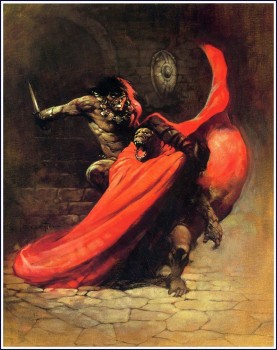
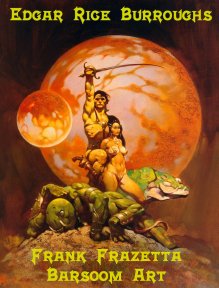 It may seem a bit peculiar to write an article about the decline in reading for a site that has done so much to promote the works of writers past and present. Most assuredly, regular visitors to this site are readers. Unfortunately, they are the exception and not the rule in the present day.
It may seem a bit peculiar to write an article about the decline in reading for a site that has done so much to promote the works of writers past and present. Most assuredly, regular visitors to this site are readers. Unfortunately, they are the exception and not the rule in the present day.
During the pulp era, writers were sometimes referred to disparagingly as the Penny-a-Word Brigade. Flash forward to the end of the second decade of the 21st Century and you’ll find far too many pulp writers who would salivate at the thought of earning a penny a word for their efforts. Far too many receive no financial compensation at all, some do not even receive comp copies of their own titles.
The purpose of this article isn’t to disparage small presses that are labors of love for publishers who regularly soldier on year after year failing to turn a profit. When you are a small operation, economies of scale aren’t even a concern. You could publish two dozen titles a year and still lose money. Paying writers or artists is not always possible for those who are in it for something other than financial return.
So what happened? Why is the market for pulp fiction so much worse than it was during the Great Depression? Why do you have to be a Stephen King or J. K. Rowling or Tom Clancy to find it easy to raise a family and live in the suburbs and not have to suffer through the drudgery of a day job with your passion relegated to a hobby at best?
The simple answer is books are going the way of radio drama. They still exist, but they are not what the masses look to for entertainment. I cannot recall a single evening my Mom wasn’t reading Agatha Christie or Mary Roberts Rinehart. She was born in 1942 and passed away when I was 10 years old just days before her fortieth birthday. I’m now 48 years old and doubt very much I would fall asleep nearly every night reading a book without her example. Why isn’t this the norm for everyone?
Leisure activities come and go. Radio drama co-existed comfortably with movies, but television eventually did the “theatre of the mind” in. A generation who lives every second of their lives, even when attending concerts, on their Smartphone will never be a generation who read books despite the best efforts of Kindle.
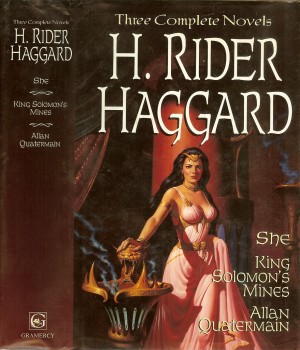
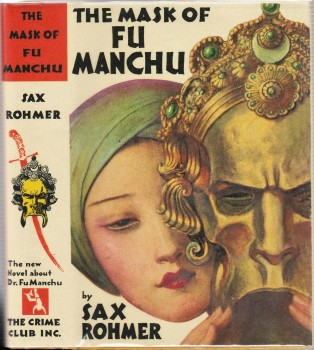 The passing of time is all around us. The greying of fanbases at pulp conventions is another sign since pulp cons were not ripe for usurpation the same way comic book conventions were by people that love comic book films and cosplay, but don’t necessarily read comic books. Millions mourned the loss of Stan Lee a few months back. One wonders just how many of those under the age of forty have actually read a comic book written by Stan Lee. They loved him as an elder statesman creator who made amusing cameos. Their attraction is to the senses-shattering, CGI-heavy, big budget spectacles and not to the simple four color comic books printed on thin paper that sold for a dime or a quarter in decades past.
The passing of time is all around us. The greying of fanbases at pulp conventions is another sign since pulp cons were not ripe for usurpation the same way comic book conventions were by people that love comic book films and cosplay, but don’t necessarily read comic books. Millions mourned the loss of Stan Lee a few months back. One wonders just how many of those under the age of forty have actually read a comic book written by Stan Lee. They loved him as an elder statesman creator who made amusing cameos. Their attraction is to the senses-shattering, CGI-heavy, big budget spectacles and not to the simple four color comic books printed on thin paper that sold for a dime or a quarter in decades past.
It is the same with the used bookstore. That gateway to the lost treasures of the past that lined every small town and big city are now an endangered species and not one the government sees fit to protect from extinction. Much of their inventory moved online while used book prices climbed, but sadly, plenty of their stock was junked. No one cared enough to keep the Mom and Pops in business. The masses weren’t reading for entertainment any longer.
Charles Edward Pogue recently summarized it perfectly in an online exchange where he remarked, “In the age of comic book super-heroes; the charms of Tarzan and [H. Rider] Haggard and the swashbuckling swordsmen of [Rafael] Sabatini or the diabolical tortures of Fu-Manchu seem rather quaint. Plus wading through Victorian prose can prove daunting to the uninitiated.”
That really says it all, books are records of the past and their value in our changing world has decreased dramatically because they are mired in the past. A work colleague who is also hovering near the half-century mark recently said of Rudyard Kipling, “we really shouldn’t be allowed to read things like that anymore” in reference to the fact that Kipling, a Progressive in his day wasn’t progressive enough to forgive the context in which he expressed certain ideas.
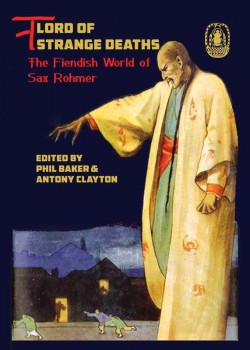 I was a kid when Star Wars and Indiana Jones debuted, but I was still old enough to be inspired to read what inspired George Lucas. Of course even then, I was not common for my generation. Everyone my age loved the myths of the 1970s and early 1980s, but they didn’t see Ray Harryhausen and Willis O’Brien films in the same light I did. They weren’t interested in tracking down newspaper strips and comic books from before their parents were born or listening to Old Time Radio or reading novels from the 19th Century.
I was a kid when Star Wars and Indiana Jones debuted, but I was still old enough to be inspired to read what inspired George Lucas. Of course even then, I was not common for my generation. Everyone my age loved the myths of the 1970s and early 1980s, but they didn’t see Ray Harryhausen and Willis O’Brien films in the same light I did. They weren’t interested in tracking down newspaper strips and comic books from before their parents were born or listening to Old Time Radio or reading novels from the 19th Century.
In a politically correct CGI world of the present, there’s even less of a connection to the past. The uncommonly interested Star Wars geek of today is more apt to read Joseph Campbell and pass by fiction with a slower pace than they are accustomed to from film and television. Today, I spend more time seeking theosophical roots to my fiction. I’ll alternate Edgar Wallace’s Sanders and Bones books and E. C. Segar’s Thimble Theatre collections while delving into “The Golden Bough” and “The White Goddess” for meatier fare.
A decade ago, I attended my first pulp convention and promptly met and befriended on the same day the aforementioned Charles Edward Pogue (several of whose scripts I had at home and whose online postings I had read with interest in the first decade of the internet) as well as Will Murray (whose various writings inspired me as a child as much as they do today now that I’m also a grumpy old man). That day in 2009, I felt like the cyclone had just set my monochrome Kansas farmhouse safely down and I just opened the door into a Technicolor world of fantasy.
I felt the exact same way when I first discovered Edgar Rice Burroughs and Robert E. Howard in the 1970s and Sax Rohmer in the 1980s and much later in life, H. Rider Haggard, Talbot Mundy, and Harold Lamb. I didn’t need Ian Fleming and John Gardner’s 007 after I first encountered Nayland Smith at age fourteen. I dreamed then I would one day chronicle Smith’s exploits and miraculously achieved that dream before I was forty. Star Wars couldn’t hold a candle to Flash Gordon in Alex Raymond’s hands or Al Williamson’s or even the Filmation Saturday morning cartoon that captured me at age eight.
My reading and viewing and listening appetites became a quest to find all the branches of this remarkably expansive creative family tree. It was the Tree of Life that mattered most to me and it lies in a Garden of Eden I still retreat to each day, if only for a short while, before sleep claims me and returns me to the drudgery of work the next morning.
My concept of Heaven is being able to have all the time to devote to everything I wish to read, watch, and listen to once more or for the first time. That’s the same promise of Eternal Life I find in reading writers like H. Rider Haggard for the first time. That’s the same promise that keeps me coming back to the road my fellow Travelers walk.
There are less of us on the road each year. There aren’t enough youthful travelers to replace us. One day soon, the road will be overgrown with vegetation and forgotten. For now, it is enough to forget the ugliness of politics and the anger of the anonymous online bully and escape into the fantasy worlds of the past and live in Utopia once more.
William Patrick Maynard is the licensed continuation author of the Fu Manchu series for the Sax Rohmer literary estate. His third book, the long-anticipated Triumph of Fu Manchu, is coming soon from Black Coat Press.
I attended my last San Diego Comiccon several years ago, after being a regular attendee for several years before that. I chucked it when the event became too big and too crowded with people – attendees, speakers, and vendors alike – who had no interest in actual comic books. The folks actually selling (and buying) old comics were exiled to one small corner of the huge convention center, a corner where at least you didn’t have to walk sideways to squeeze through solid masses of fans who were there only to hear a talk from the cast of the latest TV show that had nothing to do with comics.
There are so many things pulling us away from reading now. I’ve been a voracious reader all of my life, but in the last decade I’ve had to discipline myself to read every day, make an actual, conscious commitment to do it. If I didn’t do that, I know that both my ability and my desire to do sustained reading would atrophy. Our whole culture is geared against any serious, solitary activity, and reading is no exception.
Great post, Bill!
“That’s the same promise of Eternal Life I find in reading writers like H. Rider Haggard for the first time.”
I’m late to the Haggard party myself. The only consolation is that there are over 50 novels! What a writer. The fountainhead of so much.
In fairness William, I’m not sure writers of the golden era of pulp were any better off than their equivalent today – especially the writers who came to typify ‘Weird Tales’, (a magazine that always seemed to be mired in financial troubles of one sort of or another).
Plus story-telling is story-telling. And we do live in a golden age of story-telling. Don’t get me wrong. I love reading, I love a nicely-written piece of prose – purple or otherwise – it’s just that today, most stories are told via film, specifically TV, and for the most part, told very effectively.
Life is change, the only way not to change is to die. I don’t mind if young people aren’t doing the same thing I’m doing, I’m enjoying myself. They are enjoying themselves. The grandparents of the people who are “old now” were saying the same thing when their grandkids were getting into “cheap stories that don’t matter”
I sometimes think about the art forms that will emerge after I die that I would be a huge fan of if I lived long enough to see them.
I’m glad that I found reading and I’m glad there are enough good stories for me to read in my lifetime.
I’ve heard that India is full of insatiable readers and its population is growing immensely, and most of them read English too. Heard similar good things about other countries but I cant remember well enough and don’t have any stats for this, maybe another commenter will.
I was surprised when David (who does The Weird And The Wonderful youtube series) told me he reads all those pre-pulp obscurities on his phone!
I don’t know about the rest of the world but Britain has a ton of charity shops which can be a goldmine for books. Maybe people are replacing their paper books with ebooks?
Perhaps the reading situation is worse in America?
Whatever the case, the internet, digital files and print on demand spoils us for choice and it’s harder to devote time to any one thing. I always feel like I’m behind on something or other because it’s hard to have extensive experience in so many passions. But the increased variety is nice.
I just don’t find newer books to be all that interesting or fun to read. I still love all the old stuff, all the adventure, weirdness, and mystery, but trying to read a more modern book that’s full of awful characters I can’t stand is more of a chore than anything. It’s the reason I eventually let my subscription to SF&F magazine run out as well.
What a thoughtful, lyrical post. Your sentiment makes one think of the W.B. Yeats’ poem, “Sailing to Byzantium”:
“That is no country for old men. The young / In one another’s arms, birds in the trees, / Those dying generations—at their song, / The salmon-falls, the mackerel-crowded seas,/ Fish, flesh, or fowl, commend all summer long / Whatever is begotten, born, and dies. / Caught in that sensual music all neglect / Monuments of unageing intellect.”
Also, your conclusion calls to mind Tolkien’s defense of escapist reading in “On Fairy Stories”: “Why should a man be scorned if, finding himself in prison, he tries to get out and go home? Or if, when he cannot do so, he thinks and talks about other topics than jailers and prison-walls?”
Attention is a finite resource. Time is a finite resource. One consolation, though, is that pulp fiction is not, by way of contrast, finite. It seems to be a renewable, even fecund, resource. There will always be a book, a story, an anthology, one hasn’t read, another turn in the literary labyrinth.
That’s a comforting thought.
Appreciated this post.
Lovely post, thank you, and the comments as well.
Kids these days! They don’t read a thing!
Just not true.You must know the wrong kids. And what’s this about being and an old man of 48 ??? You’ve got ages to go still! (Says someone 8 years older)
I’ve got work to do so I’ll keep this to point form –
“You could publish two dozen titles a year and still lose money.”
(Print on Demand man, it’s the new thing, all the kids are doing it!)
“The simple answer is books are going the way of radio drama.” –
Oh, thats just being dramatic. We have 11 chain bookstores and 15 used bookstores in the city. And I’m pretty we’re not the only place that has bookstores.
Mr. Maynard is correct.
I’ve worked with books since 1985 and at the high end of publishing since 1999. The idea of books going the way of the radio drama is dramatic but not outside the realm of comparison.
And this is most especially true for the kind of fiction that we, in general and as a group, tend to prefer. Reading prose for thrills is doing a slow fade, and it is not hard to see why.
I trust that many of us are old enough that we can recall a time when reading a book was arguably the most thrilling entertainment option available.
Books delivered thrills above and beyond what one could find in any other medium. Movies wouldn’t or couldn’t approach them in intensity, thrills or imagination. Most of TV was a bland wasteland of pablum and its best examples still couldn’t touch what a book might offer. Video games were crude and cost a quarter to play in some dingy arcade full of nerds.
The advent of the VCR changed the landscape in fundamental ways that have brought us to where we are today. Now you can stream ferociously intense films and TV shows any time of day onto a device you carry with you around the clock. And those dopey video games have risen to become the top entertainment choice of the entire world. That’s where the thrills are today.
Imagine you’re 14 again and seeking some thrilling entertainment, something to pull you out of your regimented, day-to-day life. You can participate in a high-definition simulation of genre entertainment, where you fly a jet, steal a Ferrari, fire missiles at a giant robot, cast spells at a roaring dragon. And maybe you even get to do it with some of your friends helping out, cheering each other along on a net connection.
You can do that, or are you going to seek thrills in a book? With pages, and maybe a juicy adjective or two if you read far enough.
Obviously, people still read, and they still read for entertainment, but at this point a couple generations have come of age in a world where reading has been supplanted as a primary source of pure entertainment.
Whether this is good or bad is a matter of opinion, but the landscape has changed and it will never be the same.
[…] (Black Gate): It may seem a bit peculiar to write an article about the decline in reading for a site that has […]
[…] (Black Gate): It may seem a bit peculiar to write an article about the decline in reading for a site that has […]